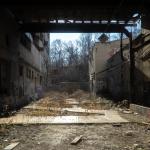
There are two major tasks in the human spiritual journey. The task of the first half of life is to create a proper container for one’s life and answer some central questions. “Who am I?” “What makes me significant?” “How can I support myself?” “Who will go with me?” The task of the second half of life is, quite simply, to find the actual contents that this container was meant to hold and deliver. In other words, the container is for the sake of the contents.
Problematically, the first task invests so much of our blood and sweat, eggs and sperm, tears and years that we often cannot imagine there is a second task, or that anything more could be expected of us. The old wineskins are good enough, we say, even though according to Jesus they often cannot hold the new wine. According to him, if we do not get some new wineskins “both the wine and the wineskin will then be lost” (Luke 5:37). The second half of life can hold some new wine because by then there should be some new wineskins. But that means, of course, that the container itself has to stretch, die in its present form, or even replace itself with something better. This is the full rub, but also our mid-life excitement and discovery.
Almost all of culture, and even most of religious history, has been invested in the creation and maintenance of first half of life issues: the big three concerns of identity, security, and survival. They don’t just dominate, they totally take over. That is where history has been up to now, I am afraid. In fact, most generations have seen boundary marking and protecting those boundaries as their primary and sometimes only task. Most of history has been the forging of structures of security and appropriate loyalty symbols to announce and defend one’s personal identity and one’s group. We were both overly defensive and overly offensive it seems, with little time left for simple living, friendship, or communion. Yet that kind of ego structure is exactly what a child needs to get through the first eighteen years or so, and what tribes need to survive. Maybe it is what history needed to get us all started. “Good fences make good neighbors,” Robert Frost said, but that presumes you don’t just build fences. You eventually need to cross them too.
We need boundaries, identity, safety, and some degree of order and consistency to get started personally and culturally. We also need to feel “special”; we need our “narcissistic fix”! By that I mean, we all need some successes, response, and positive feedback early in life, or we will spend the rest of our lives demanding it from others. There is a good and needed “narcissism,” if you want to call it that. You have to first have an ego structure to then let go of it and move beyond it.
Basically if you get mirrored well, early in life, you do not have to spend the rest of your life looking in Narcissus’ mirror, or begging for the attention of others. You have already been basically “attended to” and now it just feels good—and always will. If you were properly mirrored when you were young, you are now free to mirror others and even yourself—honestly and helpfully. I can see why a number of saints spoke of prayer itself as simply receiving the ever accepting gaze of God, returning it, mutual gazing, and finally recognizing it is one single gaze received and bounced back. The Hindus call it darshan.
Once you have your narcissistic fix you have no real need to protect your identity, defend it, prove it, or assert it. It just is, and is more than enough. This is what we actually mean by “salvation,” especially when we get our narcissistic fix all the way from the Top. When you get your “who” right, all of the “whats” tend to take care of themselves. The very fact that so many religious people have to vigorously prove their salvation theories makes one seriously doubt whether they have experienced divine election at any depth.
In the first half of life, success, security, and containment are almost the only questions. They are the early stages in Maslow’s “hierarchy of needs.” We all want and need various certitudes, constants, and insurance policies at every stage of life. But we have to be careful, or they totally take over, and become the only task, keeping us from further growth. Thus the most common one liner in the Bible is “Do not be afraid.” If we do not move beyond our early motivations of personal security, reproduction, and survival (“the lizard brain”), we will never proceed beyond the lower stages of human or spiritual development. Many sermons I have heard my whole life seem to assume this level of development, and do not seriously challenge it.
The very unfortunate result of this preoccupation with order, control, safety, pleasure, and certitude is that a high percentage of people never get to the contents—of their own lives! Human life must be about more than building boundaries, protecting identities, creating tribes, and teaching impulse control. As Jesus said, “Why do you ask, what am I to eat? What am I to wear?” And to that he says, “Is life not so much more than food? Is life not so much more than clothing?” (Luke 12:23). “What will it profit you if you gain the whole world, and lose your very soul?” (Matthew 16:26).
“The Two Halves of Life,” by Fr. Richard Rohr, OFM, was first published in Radical Grace, October-December 2010, Volume 23, Number 4, a previous quarterly publication of the Center for Action (CAC). Used with permission of the Center for Action and Contemplation, copyright © Center for Action and Contemplation.














